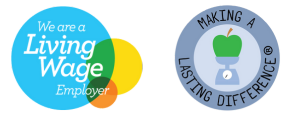
What is independent advocacy?
Independent advocacy is about speaking up for, and standing alongside individuals or groups, and not being influenced by the views of others. Fundamentally it is about everyone having the right to a voice: addressing barriers and imbalances of power, and ensuring that an individual’s human rights are recognised, respected, and secured.
Independent advocacy supports people to navigate systems and acts as a catalyst for change in a situation. Independent advocacy can have a preventative role and stop situations from escalating, and it can help individuals and groups being supported to develop the skills, confidence and understanding to advocate for themselves.
Independent advocacy is especially important when individuals or groups are not heard, are vulnerable or are discriminated against. This can happen where support networks are limited or if there are barriers to communication. Independent advocacy also enables people to stay engaged with services that are struggling to meet their needs.
Who provides independent advocacy?
An independent advocacy organisation only provides independent advocacy. All the activities it undertakes are about providing, promoting, supporting and advocating independent advocacy. Independence means that it does not provide any other services and is structurally, financially and psychologically separate from other organisations and interests.
‘Independent advocates’ or ‘advocacy workers’ work or volunteer for independent advocacy organisations. Independent advocates help people to get the information they need to make real choices about their circumstances and support the person/group to put their choices across to others. An independent advocate may speak on behalf of people who are unable to do so for themselves.
The principles of independent advocacy
The three principles which underpin all independent advocacy work
Principle 1: Independent advocacy is loyal to the people it supports and stands by their views and wishes.
Principle 2: Independent advocacy ensures people’s voices are listened to and their views taken into account.
Principle 3: Independent advocacy stands up to injustice, discrimination and disempowerment.
The eight standards, which slot under the principles and provide additional context and detail
Standards that underpin Principle 1 (Independent advocacy is loyal to the people it supports and stands by their views and wishes):
Standard 1a: Independent advocacy follows the agenda of the people supported regardless of the views, interests and agendas of others.
Standard 1b: Independent advocacy must be able to evidence and demonstrate its structural, financial and psychological independence from others.
Standard 1c: Independent advocacy provides no other services, has no other interests, ties or links other than the delivery, promotion, support and defence of independent advocacy.
Standards that underpin Principle 2 (Independent advocacy ensures people’s voices are listened to and their views are taken into account):
Standard 2a: Independent advocacy recognises and safeguards everyone’s right to be heard.
Standard 2b: Independent advocacy reduces the barriers people face in having their voice heard because of communication, or capacity, or the political, social, economic and personal interests of others.
Standards that underpin Principle 3 (Independent advocacy stands up to injustice, discrimination and disempowerment):
Standard 3a: Independent advocacy recognises power imbalances or barriers people face and takes steps to address these.
Standard 3b: Independent advocacy enables people to have more agency, greater control and influence.
Standard 3c: Independent advocacy challenges discrimination and promotes equality and human rights.
Find out more about independent advocacy and how it works in Scotland from the Independent Advocacy Principles, Standards and Code of Best Practice.
Find independent advocacy organisations in your area by visiting Find an Advocate.

